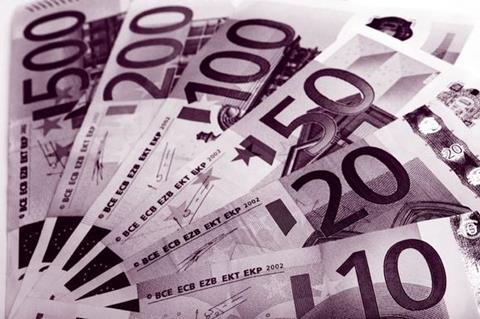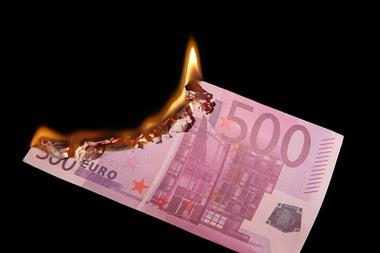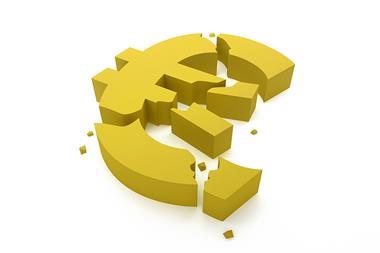What exactly would happen if the eurozone broke up in 2012? And do risk managers have a hope of preparing for such a far-reaching forecast?

By the end of this year, several observers think it’s unlikely the eurozone will look the same as it does right now. In December, the UK’s FSA asked British banks to prepare for one or more European countries leaving the euro or the single currency collapsing altogether. And in January the chief risk officers of all of Britain’s ‘systemically important’ banks were asked to attend a roundtable to discuss the fallout from such a scenario.
Other signs, such as France’s credit rating downgrade and the IMF’s refusal to extend lending support to Greece, have increased fears over the eurozone’s future. But how exactly would a eurozone break-up play out?
If Greece withdraws …
Exclusive Analysis outlined a “plausible scenario”, in which Greece withdraws from the euro in 2012, to try to help businesses understand the impact of a break-up:
After April elections, the Greek government may be unable to secure bailout funds, having missed austerity and reform targets. Greece would then need to announce its withdrawal from the eurozone, close its banking sector and freeze current accounts.
German and French governments could then nationalise their banks most exposed to Greek sovereign debt, increasing their own national debt. This would lead to a new round of credit rating downgrades.
Europe’s leaders may be unable to agree on policies to protect themselves from the contagion. Portugal and Spain, not able to access emergency bailout funds, would follow Greece and Italy by suspending their repayments. Other nations could withdraw from the Eurozone and impose protectionist measures.
Not just the banks’ problem
Europe’s big banks have already started to think about what would happen if the euro ceases to exist. But they are not the only ones.
The biggest threat to UK companies in 2012 is a break-up of the euro, according to Deloitte’s fourth-quarter survey of 94 chief financial officers from FTSE100 and FTSE250 companies. One-third of the CFOs attach a 37% probability to one or more members of the single currency leaving the euro in 2012. One respondent summed up his peers’ concerns, stating that the biggest risk in 2012 was a “eurozone collapse sparking a second credit crunch”.

Eurozone fears are naturally shared by corporate risk managers. The biggest challenge, one UK risk manager from a FTSE100-sized business says, is finding ways of growing your business when economic forecasts are so intrinsically uncertain. “How do you stay ahead of the curve and how do you stay in control of your business?” he asks.
In late 2011, a Towers Watson report called the break-up of the euro an “extreme risk” but explored the potential outcomes. “The Vienna Convention on the Law of Treaties allows a withdrawing country to redenominate all internal debt and all sovereign debt - including sovereign debt held by foreigners - in the new domestic currency. This would impose losses on foreign lenders. Private debt held by foreigners would be more difficult and probably decided by long, drawn-out legal cases.”
Is there anything you can do?
Extreme risks are by their nature hard to hedge against, because the impact is so far-reaching. But there are some strategies available. Investors seeking to hedge against the break-up of the euro might try to use credit default swaps, for example, though these can introduce different types of risk.
The first step for most companies will be to think about how this could affect its operations and its strategy. Provided it understands that, it will be able to plan appropriate actions to take. It may even be possible to draw parallels with past financial crises, such as when Argentina unpegged the peso from the US dollar in 2001, leading to massive devaluation (download the IMF report Lessons from the Crisis in Argentina at goo.gl/5QrB9).
Yet amid the turmoil, there could be opportunities for some businesses. Weaknesses in the economy could provide opportunities for cash-rich companies to acquire assets at low valuations. And weaker competition allows companies on the right footing to expand their market share.
All eyes will continue to be trained on the state of the eurozone.




















No comments yet